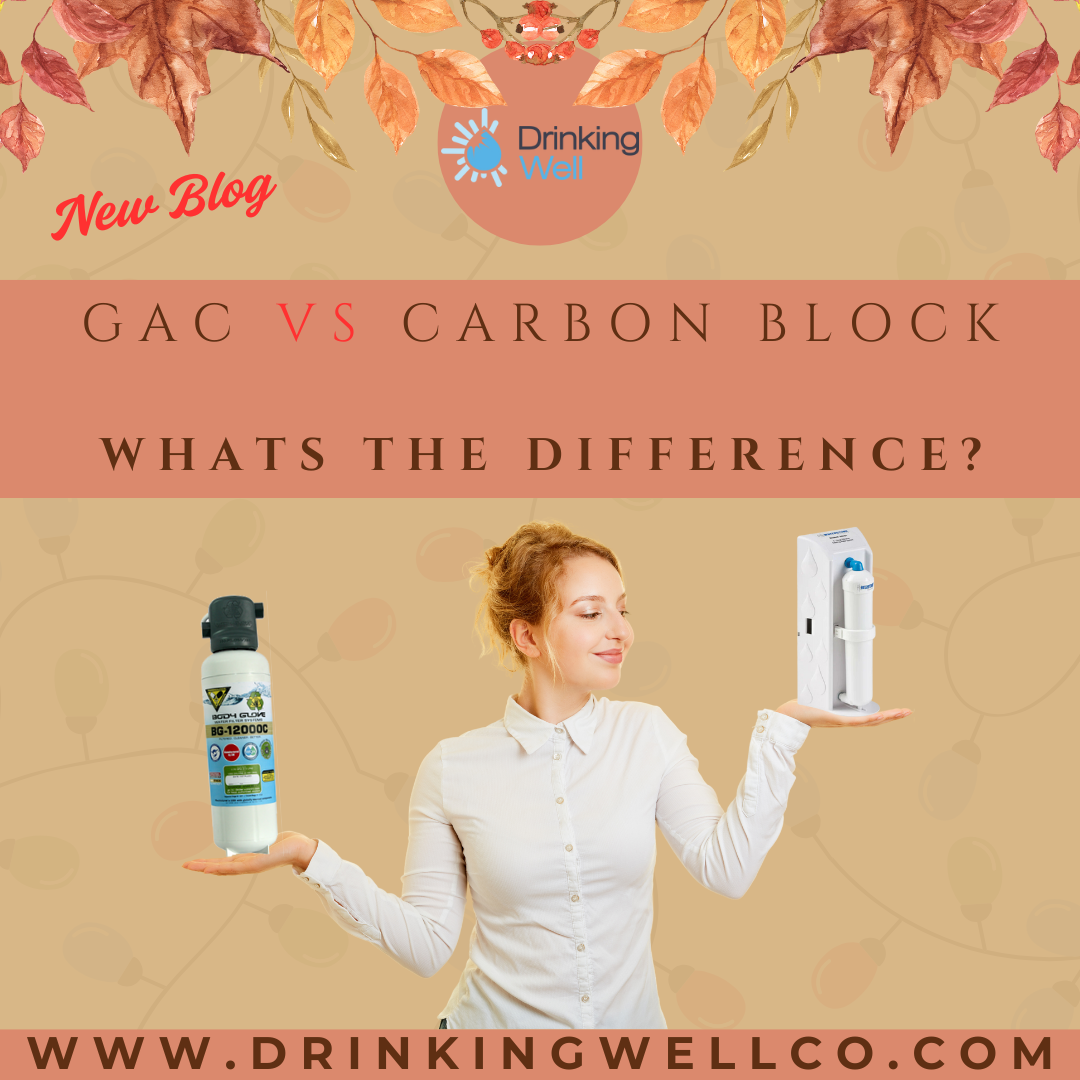Carbon Block Filters Vs Granular Activated Carbon (GAC) Filters
It's essential to understand their differences to select the best option for your water filtration needs.
Carbon Block Filters are made by compressing activated carbon into a solid block, resulting in a dense structure that effectively removes fine particles and a wide range of contaminants, including chlorine, volatile organic compounds (VOCs), lead, and cysts. They are commonly used in under-sink systems, countertop filters, and whole-house systems.
Granular Activated Carbon (GAC) Filters consist of loose granules of activated carbon, providing a larger particle structure that allows for faster water flow. While they are effective at improving taste and odor by removing chlorine and larger particles, they are less precise in filtering smaller contaminants. GAC filters are often found in pitcher filters, refrigerator filters, and some whole-house systems.
Key Differences
- Filtration Efficiency: Carbon Block Filters remove smaller contaminants and finer particles, while GAC Filters are more effective for larger particles.
- Flow Rate: GAC Filters offer faster flow rates due to their loose granules, whereas Carbon Block Filters have slower flow rates because of their dense structure.
- Contaminant Removal: Carbon Block Filters can remove chlorine, VOCs, lead, and more, while GAC Filters primarily remove chlorine and improve taste and odor.
- Lifespan: Carbon Block Filters typically have a longer lifespan in controlled environments, whereas GAC Filters generally have a shorter lifespan but this can vary with usage.
- Cost: Carbon Block Filters are slightly more expensive upfront, while GAC Filters are generally more affordable.
Examples of Carbon Block Filters
-
Better Waters XL7000 Water Filtration System
This system employs advanced carbon block filters and high-performance membranes to eliminate a wide range of contaminants from your water supply, ensuring pure and impurity-free water.
-
Environmental Water Systems Essential Max Flow Replacement Filter (F.SET.SS-2.5)
This replacement filter offers improved taste, odor, and water quality with an advanced carbon block, full bed depth filter.
-
Body Glove BG-12000 Water Filtration System
This premium filtration system features advanced carbon block technology to reduce chlorine, VOCs, lead, and even pharmaceuticals and microplastics. It provides superior water quality with eco-friendly recyclable cartridges.
Examples of GAC Filters
-
Waterstone 30102 Multi-Stage Replacement Filter
This multi-stage cartridge contains two sediment pre-filters and a GAC primary filter that work together to remove sediment, chlorine taste, and odor.
(Shop at Drinking Well Co.) -
Waterstone 30101 Multi-Stage Filtration System
This compact system is designed to provide optimum filtration in a single cartridge unit, removing sediment, chlorine, and bad taste and odor from municipal drinking water.
(Shop at Drinking Well Co.)
Conclusion
Understanding the differences between Carbon Block and GAC Filters is crucial in selecting the right water filtration system for your home. For comprehensive contaminant removal, Carbon Block Filters are ideal, while GAC Filters are suitable for improving taste and odor.
Body Glove's advanced carbon block filtration systems, such as the BG-12000, stand out for their eco-friendly designs and high-performance contaminant removal.
Explore DrinkingWellCo.com to find the perfect fit for your water filtration needs, including Body Glove systems and more!







